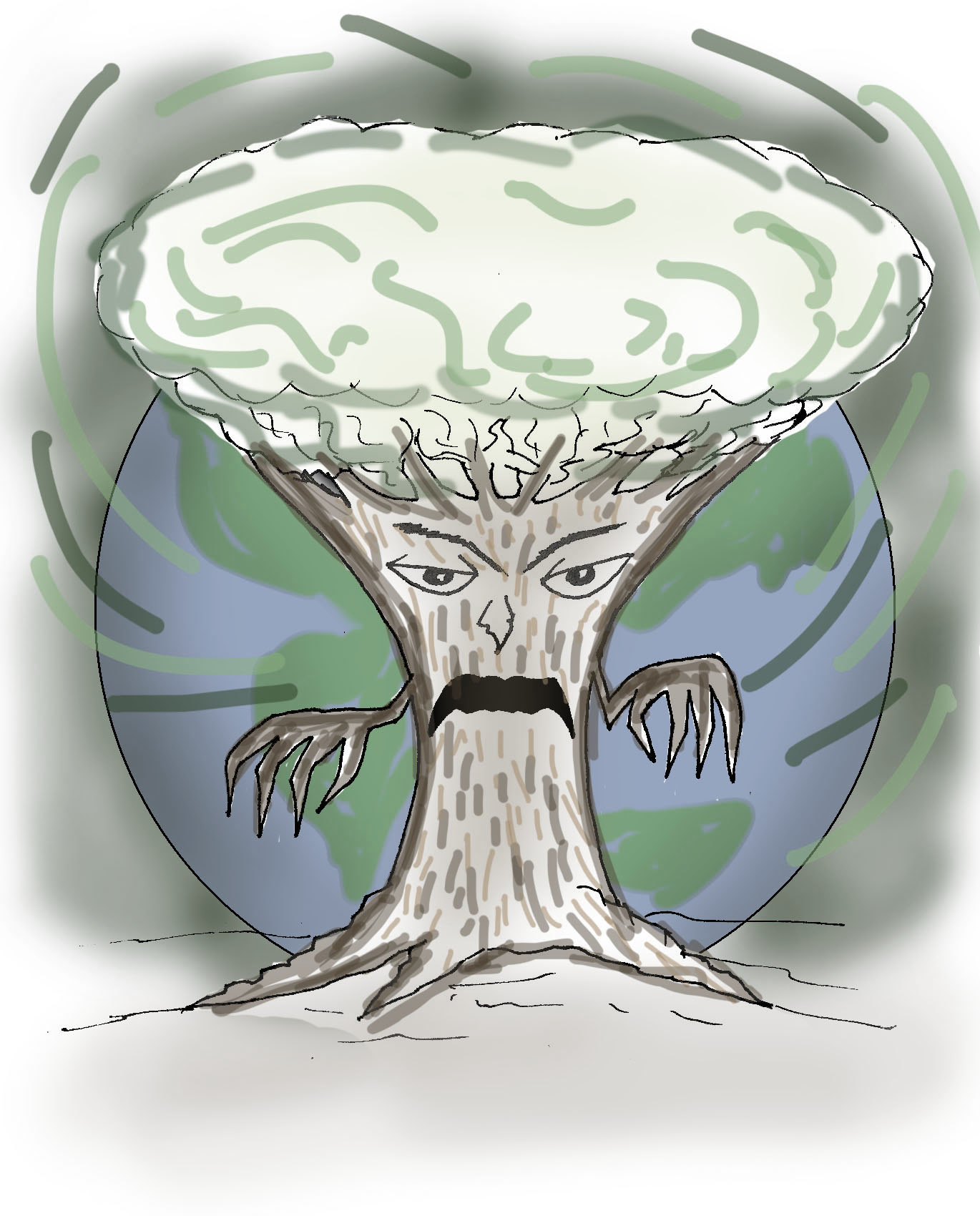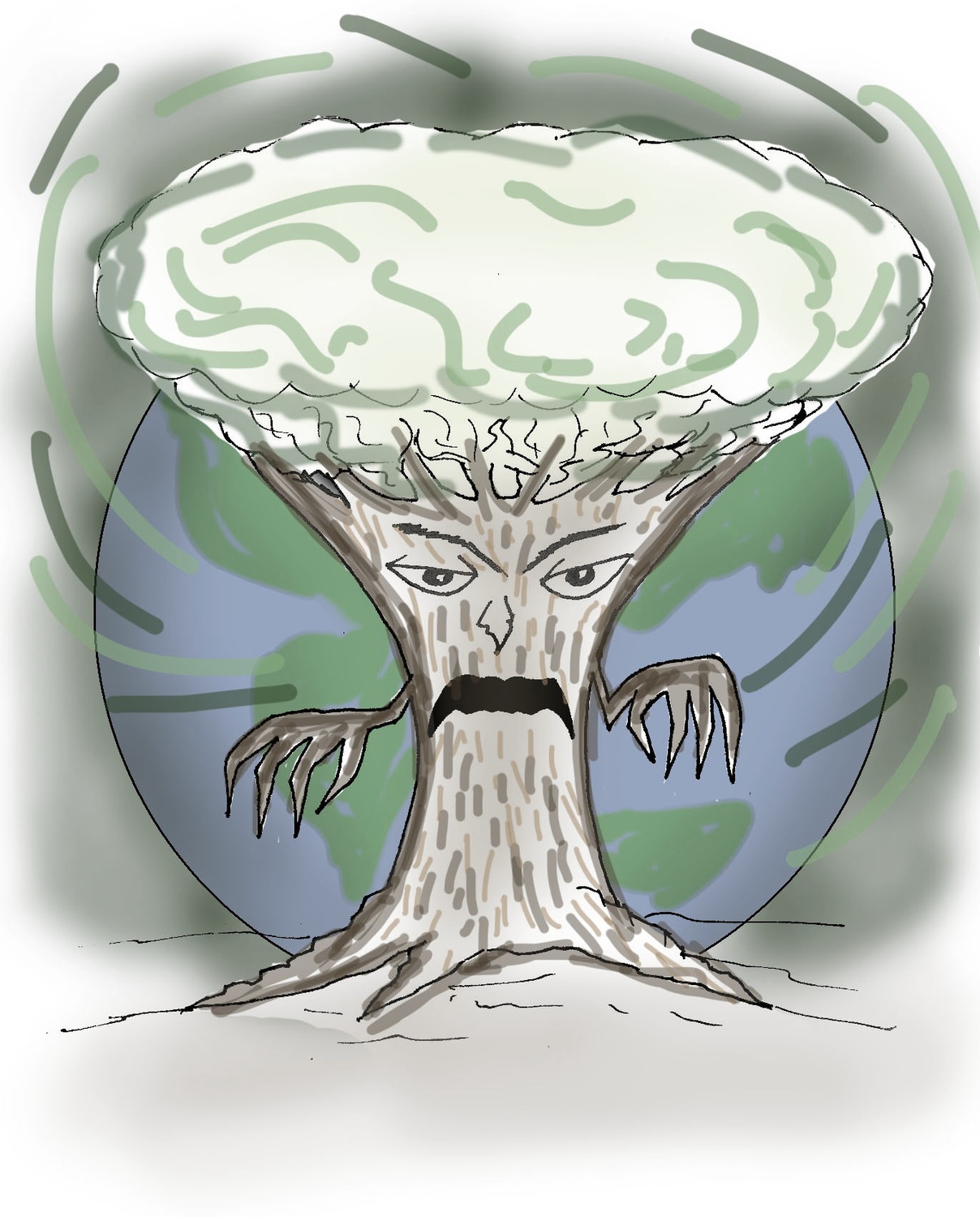
News
Summers Will Not Finish Semester of Teaching as Harvard Investigates Epstein Ties

News
Harvard College Students Report Favoring Divestment from Israel in HUA Survey

News
‘He Should Resign’: Harvard Undergrads Take Hard Line Against Summers Over Epstein Scandal

News
Harvard To Launch New Investigation Into Epstein’s Ties to Summers, Other University Affiliates

News
Harvard Students To Vote on Divestment From Israel in Inaugural HUA Election Survey
Why the Environment Sucks
A Simple Case Against Divestment

A lot has been said about divestment.
But nobody has said anything louder than the group Divest Harvard. Since President Faust came down against divestment in October, the organization has voiced relentless criticism of her decision. This reached a climax when it posted a video of several students following Faust around the Yard, arguing about divestment, as she walked to her office.
The debate format of walking arguments—called in some circles a “walkie-talkie,” an “arguemovement,” or a “troll stroll”—was criticized by Faust in an email she wrote later to the group, which expressed her disappointment in the video’s lack of “civility and fairness.”
Of course, such a “unique” discussion arrangement may not be the best way to explore the subtleties of divestment. For instance, it may not touch on the argument (presented in a popular op-ed by Victor C. Wu ’16, a Crimson editorial executive) that as long as society is dependent on fossil fuels, Harvard’s divestment will not affect energy companies’ profits or political power—only technologies and policies that lower our demand for fossil fuels will. Or Faust’s point that the endowment’s growth furthers education and research in environmental policy and technology. Or her claim that selling Harvard’s shares in fossil fuel companies could have a “substantial” impact on the endowment’s growth, while it would have little impact on that of the fossil fuel companies. Or Wu’s point that fossil fuel companies are investing hundreds of millions in green energy anyway.
But one idea you can get from a “walkie-talkie” is very simple: On the surface level—the level most students have time to think about—divestment seems to pit the little guys against the big guys. Students are seen fighting against Exxon and the Harvard Corporation. Grass roots organizers are seen fighting against huge corporate pockets. And they all can be seen fighting at a dramatic, high-octane, brisk walking pace.
Faust and other divestment skeptics have repeatedly stressed that they support fighting climate change—it’s just that divestment isn’t an effective way of doing so. But when debating in such an erratic way, the distinctions in their positions go unheard. Rather, only a simple message comes through: If you reject divestment, you reject the environment itself.
Sure, it’s inaccurate, unfair, and alienating. But when people follow one another around with a camera, reducing environmental issues to images of ridiculous simplicity, there’s no other way—they have to fight at that level. They have to fight simple with simple. In order to “participate” in the conversation, they have to fight the environment.
And, well … so … since no one else is going to do that any time soon, I figured I might as well give it a try.
Don’t get me wrong. Like many of you, I’ve lived on Earth for most of my life. It’s a nice place. Though hurricanes suck and the whole “night” thing feels like a bit of a waste, it’s a solid planet overall.
But sometimes, when I picture the “environment” specifically, the only images I can think of are of mud-soaked animals, urine-infested seas, and trees either shedding for winter or spreading their reproductive organs around for spring. At the end of the day, nature is dirty. And it completely goes against our clean, man-made world.

For the sake of argument, let’s look at the best that environmentalists have to offer—trees. Majestic and strong, they are environmentalists’ greatest symbols for nature’s beauty and power. But even these seemingly silent, wooden creatures are harmful to the endeavors of humanity. Their main function is sucking up the carbon dioxide that keeps the weather nice and warm. And the only thing they have to offer us in return is oxygen—something we already have so much of, it’s basically free. They mysteriously lurk over us, waiting and “barking” all the time. And when they strike, it’s not pretty. The New York Times reported that (this is real) falling tree branches have killed at least three New Yorkers, wounding many more, in the last 10 years. Obviously, the trees are against us. And if we don’t stop them, they won’t be the saps—we will.
It’s not just trees. We already have weather warning systems, structures with 90-degree angles, Lysol sprays, and everything else we’ve built to fight Mother Earth as a whole. So when Florida goes underwater, inclement weather destroys the countryside, Al Gore has his greatest vindicating moment since the first videos of Kim Kardashian were posted on the internet he invented, and the environment is lost forever to climate change, will that really be such a defeat?
Honestly, I don’t know.
All I know is that the divestment movement is quickly spreading to campuses across the country. And I know that the “point of no return” for climate change is approaching just as fast. A lot of people have already spoken out to protect the Earth. Some of them are loud. And a few of them are aggressive.
But when there is pressure to make change happen—just when time is short and the ramifications of failure are horrific—that’s when being panicked and aggressive is most costly. Rather, the only way to make meaningful change is to listen to one another and fight patiently, together, in the face of adversity. Maybe if we can do that and do that now, we won’t have to regret everything else that comes later.
Otherwise, I’ll just be here with a grin on my face and some more anti-tree puns on my tongue. I never gave those poor saps the full “treetment” anyway.
Dashiell P. Young-Saver ’16. a Crimson editorial writer, is an English concentrator in Winthrop House. His column appears on alternate Fridays.
Want to keep up with breaking news? Subscribe to our email newsletter.
